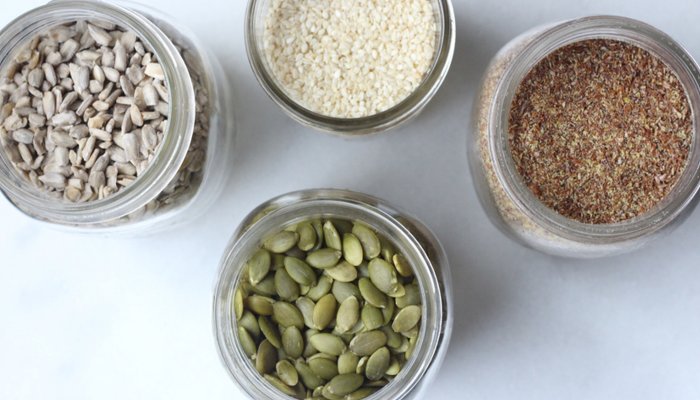Seed Cycling: Do RDs Recommend It For Homeone Balance?

Even though the theory behind seed cycling is promising, there isn’t ample science to support this practice in the medical literature.
Azzaro points out that “only recently has there been published research on the seed cycling regimen.”
In a randomized study5 published earlier this year, 20 women with PCOS followed a seed cycling regimen in addition to following a portion-controlled diet and exercising. “This study did show a small decrease (1.5-2%) in luteinizing hormone levels compared with the control group,” which is a hormone that impacts sexual health and reproduction.
However, Azzaro shares that “improvements in symptoms and menstrual regularity were not reported.”
Azzaro also highlights an older study6 (published in 1993) on 18 women that “suggested that consuming flaxseed daily throughout the entire menstrual cycle (the typical dose was 30 grams or about 1/4 cup) may help regulate menstrual cycles and lengthen the luteal phase, but the dose studied is about 4x that used in the seed cycling regimen as it’s typically described.”
That’s not to say that flax, pumpkin, sunflower, and sesame seeds aren’t good for your overall hormone health. Including them in your diet in any form or fashion may have the following benefits: